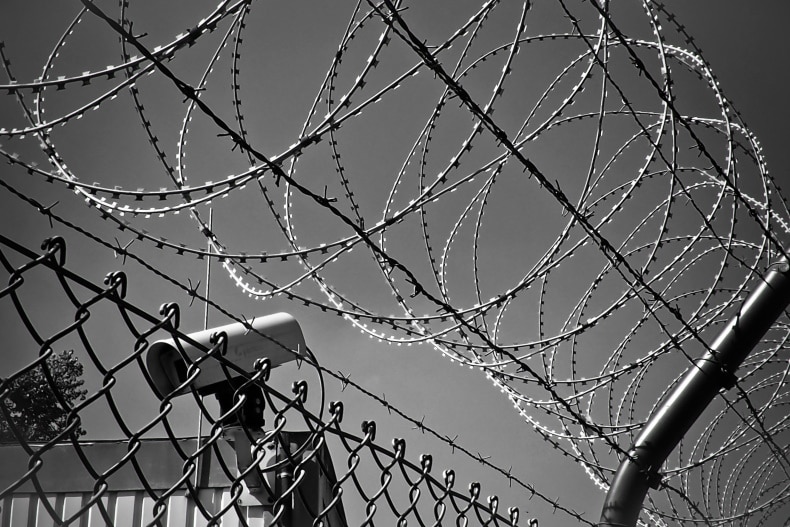- DUI
- Criminal Defense
- Florida DUI
- Traffic Offenses
- Drug Charges
- Marijuana Charges
- Violent Crimes
- Domestic Violence
- Temporary Injunctions
- Weapons Charges
- Theft Crimes
- White Collar Crime
- Juvenile Offenses
- Sex Crimes
- Violation of Probation
- Early Termination of Probation
- Seal or Expunge Criminal Record
- Criminal Appeals
- US Federal Offenses
- Misdemeanor Charges
- Felony Charges
- Co-Defendant Cases
- College Student Defense
- College Student Hearings
- FSU Students
- FAMU Students
- Florida Panhandle Arrests
- Extradition to Florida
- Bench Warrants / Warrants
- Emergency Bond Hearings
- Gambling Charges
- Drone Arrests
- Marsy’s Law
- UAS Infractions
- Introduction of Contraband
- Lying to Police
- Locations
- Case Results
- Our Firm
- Media
- Resources
- Blog
- Contact Us
CS/SB 494 – Compensation of Victims of Wrongful Incarceration
May 11, 2017 Don Pumphrey, Jr. Criminal Defense Clean Hands Provision Social Share
Finally Getting Rid of Clean Hands?
What happens when a prisoner is wrongfully accused of a crime? We can hardly deny that prison, for any length of time, can be a completely life changing experience. Especially if the wrongfully accused crime was something heinous such as sexual assault, homicide, or serious drug offenses. So what has the Florida government done to ease wrongfully convicted individuals back into everyday life? In 2008, the Florida Legislature passed the Victims of Wrongful Incarceration Act. The Act was designed to compensate wrongfully convicted individuals for every year that he or she served in Florida prison, up to $2 million dollars. The catch is that to qualify for compensation for wrongful incarceration, the victim must have “clean hands.” Having clean hands means that the wrongfully incarcerated victim must have no prior felonies.
What is the Wrongful Incarceration Compensation Act?
The Victims of Wrongful Incarceration Compensation Act established the administrative process for receiving compensation for wrongful compensation. The victim petitions the original sentencing court for an order finding that he or she was wrongfully incarcerated and is eligible for compensation. In this process, the Department of Legal Affairs administers the eligible person’s application process and verifies the validity of the claim. The Chief Financial Officer arranges for payment which is payable to the victim over the course of ten (10) years, at $50,000 per year, totaling $2 million dollars.
Fla. Stat. § 961.04 the Clean Hands Provision
An individual will be ineligible to receive compensation for wrongful incarceration if any of the following apply:
- during the individual’s wrongful incarceration, the person was convicted of, or pled guilty or nolo contendere to, any felony offense;
- during the person’s wrongful incarceration, the person was also serving a concurrent sentence for another felony for which the person was not wrongfully convicted; or
- before the individual’s wrongful incarceration, the person was convicted of, or plead guilty or nolo contendere to, regardless of adjudication, any felony offense;
What Does Senate Bill 494 Do?
Senate Bill 494 is set to amend chapter 961 of the Florida Statutes, which establishes the administrative process for compensating those who have been wrongfully incarcerated in Florida prison. Currently, an individual is not eligible for compensation for wrongful imprisonment if he or she has a felony on his or her criminal record. It is important to note that while thirty (30) other states have a type of wrongful incarceration statute, Florida is the only state that has a so-called “clean hands” provision. The interesting thing about the clean hands provision is that it punishes the victim of wrongful incarceration for past acts that he or she has either already paid for with incarceration or fines. Either way, the debt to society has been paid. Yet, the clean hands provision would deny compensating the victim for the State’s mistake. Currently, any felony will disqualify a victim. If SB 494 passes, only violent felonies will disqualify a victim. The hope is that such a change will widen the pool of available applicants. Since 2008, only four (4) people in Florida have been compensated for wrongful incarceration. Senate Bill 494 would narrow the list of the kinds of felony offenses that would disqualify a person from being compensated for wrongful incarceration. Accordingly, a felony would disqualify a victim if any of the following apply:
- during the person’s wrongful incarceration, he or she was convicted of, pled nolo contendere to, regardless of any adjudication, any violent felony; or
- during a period of parole or community supervision on the sentence that led to his or her wrongfully incarceration, the person committed a violent felony that resulted in the revocation of the parole or community supervision.
Additional Resources Senate Bill 494 -Visit the official website of the Florida Senate for more information on the current status of Senate Bill 494, including the most up-to-date analyses, the voting history, any amendments, or citations to the Wrongful Incarceration Compensation Act.
Find an Attorney for Wrongful Incarceration in Leon County, Florida
The idea that not having clean hands somehow justifies wrongful incarceration by the State of Florida is disappointing. Wrongful incarcerations have taken the lives of many defendants and have substantially uprooted their lifestyles. The Florida Clean Hands provision prevents wrongfully incarcerated individuals from their ability to start over. If you or someone you know has been wrongfully incarcerated, call the attorneys at Pumphrey Law. Our attorneys have years of experienced fighting for the rights of those who have been wrongfully convicted and incarcerated. Pumphrey Law is located in Tallahassee, Florida. We serve clients accused of crimes in Leon County and the surrounding areas throughout Florida’s Second Judicial Circuit including Bristol in Liberty County, Crawfordville in Wakulla County, Monticello in Jefferson County and Quincy in Gadsden County. We also represent clients in the surrounding areas of the Florida Panhandle and Big Bend region. Call (850) 681-7777 for an initial consultation.
This Article Was Last Updated on Thursday, May 11, 2017.











